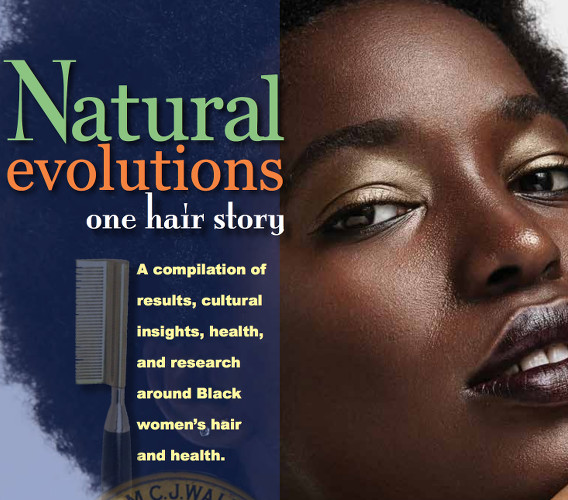
A recent report released by Black Women For Wellness, outlines the health risks associated for black women who regularly use certain hair care products and engage in certain hair care practices. The California-based advocacy group called for tighter federal regulation and oversight.
The report, which was created with research findings and data that Black Women For Wellness has been compiling since 2009, cites a long list of health complications that can arise from the longterm use of certain black hair care products. Such compilations include respiratory disorders, reproductive issues, and skin and eye irritations.
The report also takes care to address the significance of hair care and hair salons in the black community,
The Black hair and beauty industry is more than simply big business, it is multi-layered, complex and touches the lives of Black women and girls. It allows for self-expression, tracks family history, it is an economic base, it connects us to Black women across the globe, and has deep historical roots. However, little is known about the connection between the beauty products we use and the health of Black women, both as consumers and workers.
As the beauty industry booms, products marketed to and used by Black women are found to be toxic, containing chemicals that are carcinogenic, linked to hormone disorders, reproductive health challenges, and contributing to obesity rates. Black hair care professionals and consumers are experiencing the consequences of cumulative impacts of toxic chemical use from exposures in hair salons and unregulated, untested products.
Feedback from black consumers also features prominently. From 2009-2010, Black Women For Wellness hosted several focus groups and one-on-one interviews with community activists and leaders who regularly make use of black hair care products. Participants, which ranged in age from 16 to 60, responded to a variety of different inquiries, such as how far they were willing to travel for hair care products, the significance of price, and what influenced them to purchase a product.
In addition to consumer health, when it comes to the handling of black hair care products, the health of salon workers is also tantamount. Last year, Teni Adewumi, a graduate student and the environmental-justice program coordinator at Black Women for Wellness surveyed a group of salon workers in Inglewood, California and found that many of the individuals she spoke with had health concerns as a result of their occupation. According to the recent report, 60% of stylists surveyed “stated they never received training on the potential health effects of chemical hair products.”
While Black Women for Wellness is seeking legislative changes, educators like Adewumi continue to reach out to salon workers and consumers alike.
“We are seeing beauty professionals burdened with long-term, severe health impacts from exposure to toxic chemicals at work,” says Adewumi. “Professionals should be equipped with the information and education they need to make informed decisions about hair care products. If not, how can they protect themselves and their clients?”




